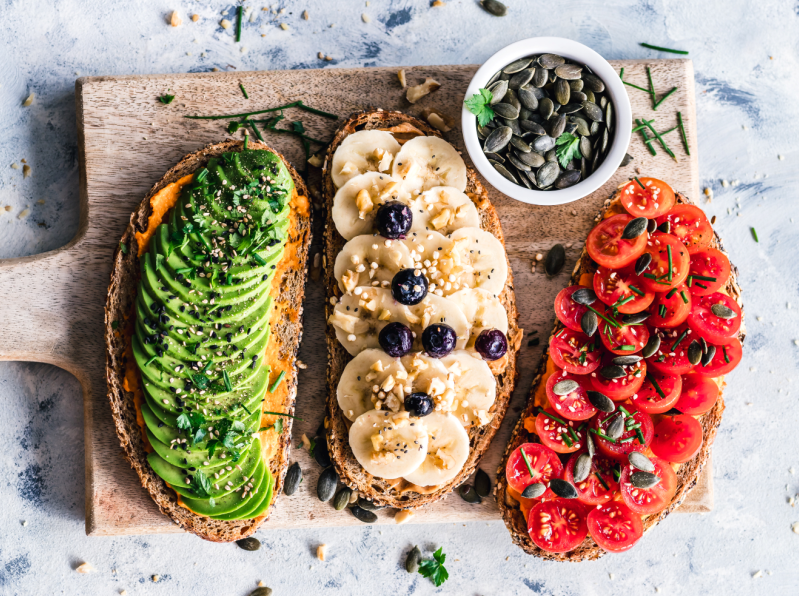
Photo by Maddi Bazzocco on Unsplash
As we move through the different stages of life, so do our dietary needs. Regardless of your age, taking care of your health should be a priority. Yet, the way you do so and the contents of your diet should reflect the changes in your body that occur with the aging process. It’s common knowledge that what we eat can determine not just our physical health but our mental health as well. Therefore, as the years pass by, you should change your approach to your health. By making the effort to adapt your diet, you can provide the nutrients your changing body needs and, possibly, the answer to the age-old question of aging gracefully.
How Your Dietary Needs Change
As you age, the number one thing that changes too is your metabolism. With age, the rate at which your body processes any food into energy begins to slow down. This is the top reason behind why you cannot eat the same foods in your 30s and 40s - as you did when you were in university - without noticing a more profound impact on your body, including your weight and BMI. Therefore, not only is a healthy diet important in your older years but so is staying active through exercise. Diet and exercise are two important pieces of the post-retirement puzzle when it comes to staying healthy later in life for less. With a fixed or decreased income, many retirees are worried about the cost of maintaining such diet and exercise regime, but the good news is that both of them can be easily incorporated into your life and fit into your budget.
Another aspect of your diet that changes is your hydration levels. Staying hydrated is important to everyone at any age. But as you age, medication taken can lead to dehydration - so it is important to keep up your water intake, although many seniors are tempted to drink less water due to frequent bathroom trips and developing bladder sensitivity. Studies have also shown that water intake is vital to maintaining our cognitive abilities as we age and is a part of the claim that a healthier diet can help the brain age well. In addition to water intake levels, the absorption of vitamins differs with age and eating a diet that supports later life challenges and medical conditions such as memory loss can prevent or help you live a better life as you age.
Here’s how to meet some of the changing nutrition requirements.
Support Bone Health by Including Calcium
A diet rich in calcium and vitamin D is vital to the maintenance of bone health in senior adults. According to the International Osteoporosis Foundation, adults aged 50 and over should aim to get between 1000 -1200mg of calcium (dependent on gender). They also recommend that seniors aged 60 or older take a vitamin D supplement of 800-1000 IU each day. More than 25 million Americans are affected by Osteoporosis each year and 1 in 4 women aged 65 and older find themselves dealing with bone density issues. Aim for a diet filled with leafy, green vegetables such as kale, canned fish such as salmon, and dairy products such as milk and yogurt.

Photo by Ella Olsson on Unsplash
Aid Your Digestive System with Fiber Rich Food Options
Digestive issues such as indigestion, digestive tract disorders, and gastrointestinal problems are a commonly cited problem by seniors today. This is because as we get older, parts of our digestive systems including the esophagus and stomach undergo changes and their ability to resist bacteria and damages decreases. Eating a fiber-rich diet can help you maintain a regular digestive system along with helping prevent conditions such as heart disease, according to the 2014 Harvard Health Letter by Harvard Health Publishing. To satisfy your fiber requirements, opt for whole grains and whole wheat bread. Nuts and seeds such as almonds along with beans are also great sources of fiber.
Avoid Hypertension with Potassium
High blood pressure can also become a factor as we age. According to the National Heart, Lung, and Blood Institute, someone with high blood pressure at age 50 has a 90% chance of developing hypertension later in life while one in three Americans deal with hypertension in their life. To counteract this, begin to reduce your sodium intake and boost your potassium intake. Aim for no more than 1,500 mg of sodium each day and increase your potassium levels by including fresh fruits and beans. Leafy vegetables such as spinach along with root vegetables like sweet potato are also rich in potassium. However, keep in mind that their mode of preparation should be a low salt one. And remember that exercise plays an important role in maintaining both good heart health and healthy blood pressure.
As you can see, adapting your diet as you age involves simple changes to your everyday eating habits and making smart choices in the food you eat. Small changes such as those mentioned above are easily adaptable, sustainable and are budget friendly. It is our responsibility to take care of our health. After all, your health is truly your wealth.
Guest post by Sally Collins
About the Author
Sally Collins is a professional freelance writer with many years of experience across many different areas. She made the move to freelancing from a stressful corporate job and loves the work-life balance it offers her. When not at work, Sally enjoys reading, hiking, spending time with her family and travelling as much as possible.
You may also like
42 Best Stores to Buy Health Foods and Supplements Online
How to Methodically Approach Your Health
Senior Health: 4 Smart Choices for Successful Aging
